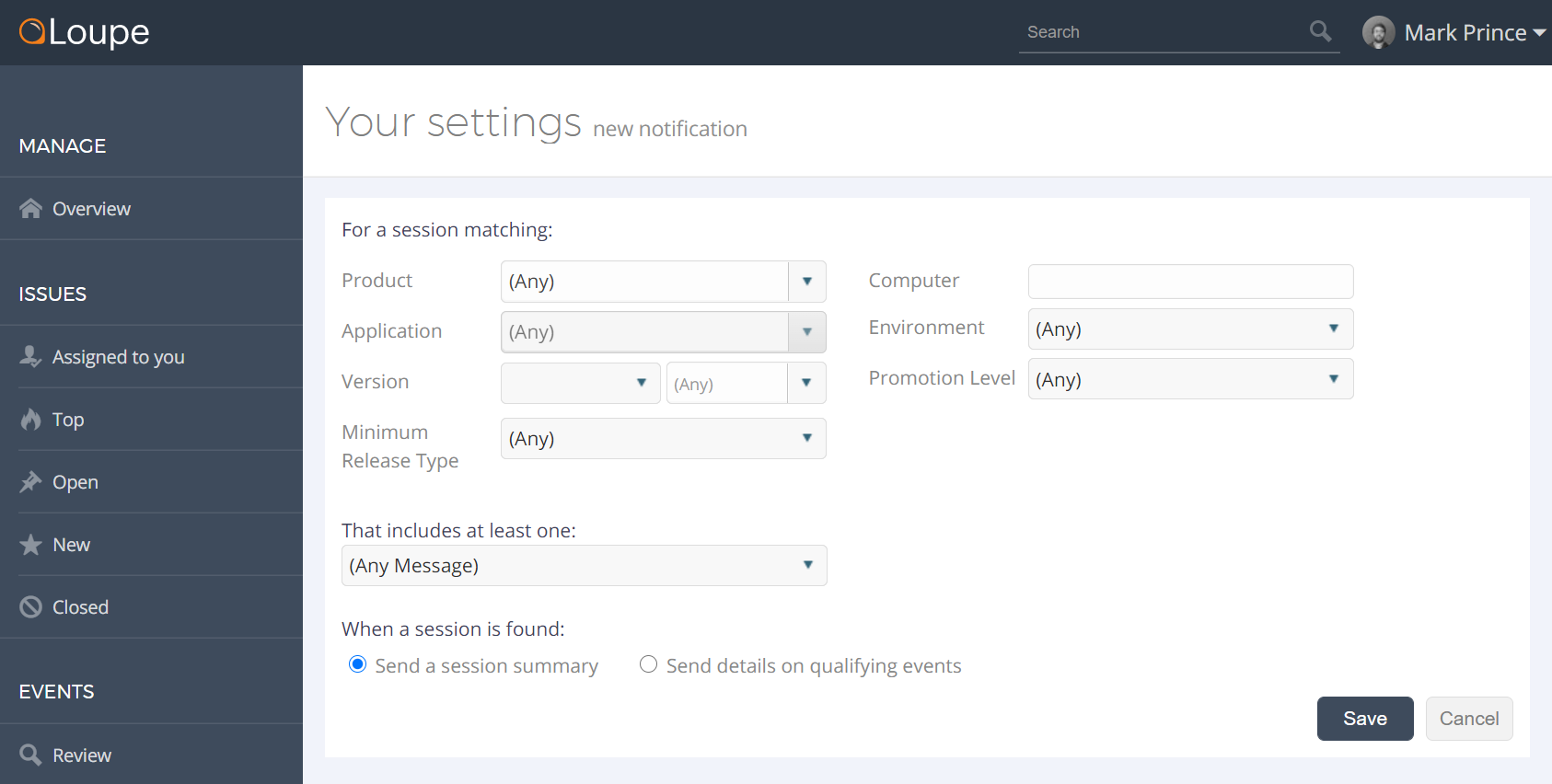How Does Logify Compare To Loupe
Logify was a log monitoring system focused on sending notifications for crashes and exceptions in production applications.
As of October 2021, it will no longer be available to use.
For developers looking for a Logify alternative, we recommend Loupe Server, our centralized logging/log monitoring platform.
In short, Loupe Server should be an easy replacement. The features line up nicely between the two, and the workflow can be quite similar.
Loupe As a Logify Replacement
Loupe notifications work with your messaging platform
Loupe can send crash and error notifications through email, but also to the following messaging platforms:
- Microsoft Teams
- Slack (you can see us add it to an application in this tutorial)
- Google Hangouts
- HipChat
Sending notifications exactly where you want them was one of the strengths of Logify as well. Email is the way to go for some organizations, while others prefer to share a Slack or Teams channel where everyone can access notifications. With Loupe, you do not need to send notifications somewhere else, as it works with the same platforms as Logify (and a few more). You can even mix-and-match platforms, set up unique email notifications for yourself, then have notifications sent through messaging services for the whole team.
Loupe keeps you informed, not overloaded

If an error occurs one thousand times in an hour, you want to know about it. What you don’t want is one thousand emails about the same error over that hour, making your inbox effectively useless for other communications (and error notifications more likely to get ignored). Logify had measures to ensure this didn’t happen, and Loupe does as well. So when an error occurs, Loupe will send you the first notification. But if the error occurs at a high rate, Loupe will instead send periodic messages to let you know the error rate, rather than sending a message every time.
Additionally, Loupe includes other settings to let you control when notifications are sent:
-
Log Severity: Choose whether you want notifications for just critical events (crashes) or include notifications for errors, and even warnings when the application warrants that level of scrutiny.
-
Application Version: Want to only receive notifications for your three most recent releases? Have someone on the team dedicated to maintaining the older versions? Loupe can detect the versions of your application and use them as a filter for notifications (versions less than, greater than, or equal to x.x). Loupe’s version awareness can also help you determine whether your application is improving each release.
-
Release Types: You may have different alerting needs for your production, beta, and internal releases, and Loupe allows you to select a minimum release type when creating notifications.
-
Computer & Environment: With Loupe, you can select to receive notifications from specific environments, such as your Azure or development server. If you need to narrow it down further than that, you can filter for individual computers.
These options and more allow you to set up notifications with either broad or hyper-specific settings, letting you stay informed without getting bombarded by messages. Of course, if you do get an error alert that you don’t want to receive again, you can opt to ignore the specific error and stop it from triggering notifications or appearing in the event review menu. You can also cancel notification rules at any time.
Detailed Error Information

Logify has the option to add data to notifications.
With Loupe, we include detailed information in each log, effectively adding the same information by default.
You can use data like user and machine IDs, operating system, machine specs, etc., to search your logs.
Loupe also tracks detailed metadata on errors such as how often they occur, the number of users that have encountered the error, and when the error was first/last seen both by date and application version. You can also investigate related events, statistics for the error, and find out more about the users affected. This way, you can better prioritize what to fix, as an error that affects two users is much different than one that affects hundreds!
What Else Can Loupe Do?
Beyond application log monitoring, Loupe Server works as a centralized logging service, issue management platform, and provides key metrics for maintaining successful applications.
Logify had a primary focus on application crashes and errors. Loupe has a stronger focus on all of your logging, including warnings and information logs. It categorizes your logs into individual application sessions, allowing developers to see what happened before and after any errors, and find problems outside the scope of crashes or errors.
Additionally, Loupe uses the detailed session logging to collect information on application adoption between versions, where your application runs (hardware/O.S.), and who is using your application (to help identify your biggest users). Plus, if you want to view performance metrics and items like SQL query runtimes, you can download the Loupe Desktop client and drill even further into your data.
Getting Started With Loupe is Easy
Integrating your application with Loupe just requires an assembly reference and a few lines of code. You can see specific details for ASP.NET Core, WPF, JAVA, and more on our “Getting Started” documentation. Or, if you would like to give Loupe a hands-on try, you can use or 30 day free trial. Finding a new system is always challenging, so if you have any questions about Loupe as a Logify replacement, feel free to contact our support.